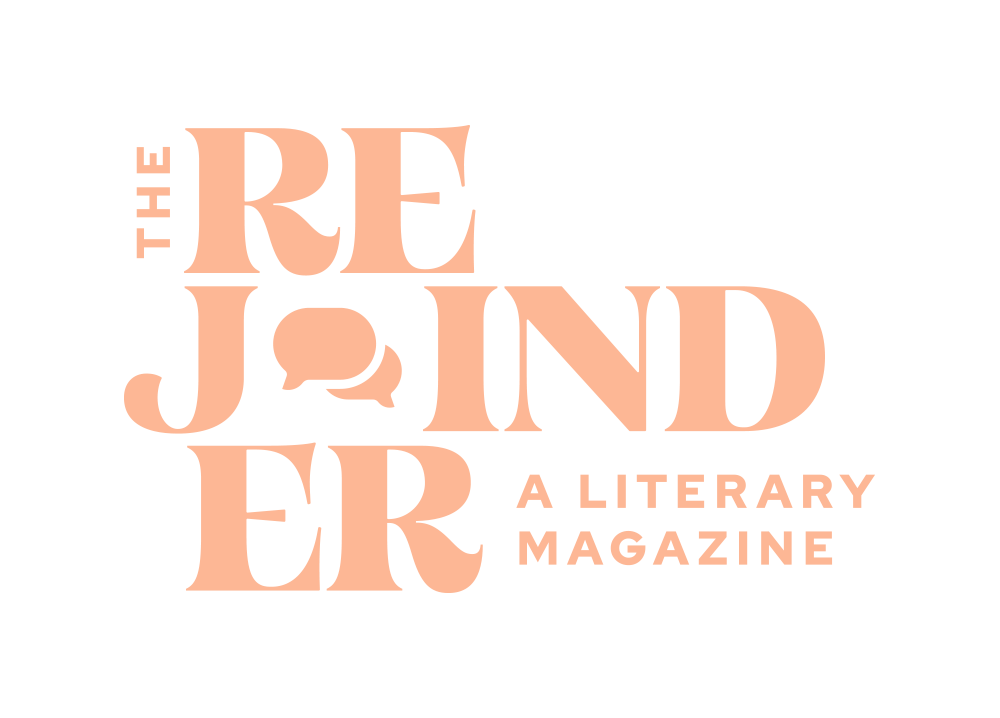4 Questions with McLeod Logue
Today, we published two poems from McLeod Logue, “The Wind Phone” and “Reclamation.” Michael Colbert spoke with McLeod about ghosts, writing place, and memory.
The Rejoinder: We've talked about "Wind Phone" before, and I'm really haunted by this poem. Can you share a bit about how wind phones work and why you're drawn to them?
McLeod Logue: A wind phone is a disconnected telephone booth that serves as a vessel for visitors to speak to loved ones who have passed away. The original installation was created by a Japanese garden designer, Itaru Sasak, to help him grieve the loss of his cousin and keep a physical connection between them. The idea is that as you speak to the person you’ve lost, your words are carried by the wind to wherever they are now.
Right before my grandmother, Robin, passed away, my grandfather had one installed on their property. He’s a sculptor, so their yard is already full of magical things and works in progress framing the surroundings of the phone booth. Robin spent a lot of her final days talking to Georgia, her daughter, through the wind phone, and now we get to speak to her through the same receiver.
It’s all very emotional for me. I actually wrote this poem in the car leaving my grandparents' house after seeing her for the last time. I can feel her in that space more than anywhere else.
TR: Place also feels like an important part of your work. How does the Alabama of your poetry interact with the one in your memory?
ML: To me, place is the foundation of my work. Without it, everything falls flat. The Alabama in my poetry is much sharper and full of anger in a way the real space no longer seems to be. I resisted that for a long time because of the discomfort that comes with bastardizing anything that means a great deal to you. But place, like family, and even like the speaker’s voice, is only one dimension of a much larger experience.
I love Alabama and often I’m proud to be from there. But it’s complicated, too, especially as life-changing legislation is passed to encourage harm to real people I know, love, and have lived alongside. Oddly, I feel more connected now from states away than I ever did while I was growing up there.
The beauty of poetry is that my Alabama can change alongside the real one and mature in tandem with my speaker.
TR: I know you think a lot about ghosts. What kinds of ghosts do you think are moving through your work these days?
ML: I like to think about ghosts as a grounding metaphor for anything I can. Something about a haunting feels very rich to me, especially because it displaces my voice from the center of the writing process. If something is already there to begin with—the past, an illness, or a fractured version of me—it sets the stage for context that might otherwise be overlooked.
The main idea that I keep returning to in the collection I’m working on is the tension between the body, the speaker, and an eating disorder. My speaker is trying to reckon with where she can take up space in this container (the body) that holds her and the ED. I’ve been toying with this idea a lot, but right now I’m trying to pinpoint where the “ghost” of the ED first appears. I think it came from the earth, but I’m not quite sure. It’s very illusive and clearly doesn't want to be caught just yet.
TR: What's exciting to you in poetry right now?
ML: I’m currently working on a project with a small group of singers and composers. I won’t reveal too much since I’m still in the throes of drafting, but I feel very excited to write from perspectives other than my own. I’m really pushing myself to consider sound in ways that I haven’t before, not just as music within the poetry itself, but as both a guidepost and a disruption.
Sometimes my writing process can feel very isolating. This experience is teaching me to think of my language as a tool for performance, or something that can exist outside of the limitations of page. Interdisciplinary creativity is something I’ve slipped away from over the past few years, so it feels like a new beginning in a lot of ways.

